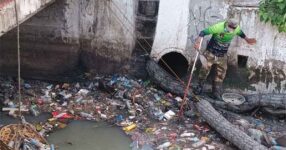
Addressing fecal coliform contamination in Cebu City’s waterways
RECENT findings have revealed a concerning rise in fecal coliform levels in the downstream sections of Cebu City’s seven major waterways. The primary contributors to this pollution are wastes from local communities and agricultural activities, particularly hog and poultry farming.
Here’s what you need to know about this critical issue and its implications for public health and the environment.
What are fecal coliforms?
Fecal coliforms are a group of bacteria found in the fecal matter of humans, livestock, and wildlife. Their presence in water indicates contamination, which can lead to health risks associated with waterborne diseases.
Sources of pollution
The City Environment and Natural Resources Office (Cenro) reported that many households along the riverbanks discharge septic waste directly into the waterways. This practice has been exacerbated by inadequate sanitation facilities.
City Ordinance 2398 establishes a Septage Management Program aimed at managing waste and penalizing households without proper toilets or septic systems. However, many households lack the space to install these essential facilities.
Hog farming also significantly contributes to water pollution. Hog operators often dispose of animal waste through underground PVC pipes, which leads directly to creeks and rivers. This issue is particularly problematic during heavy rainfall, when waste runoff can flood waterways.
The impact on water quality
In August 2024, water quality tests indicated alarmingly high levels of fecal coliform in all seven waterways: Bulacao, Kinalumsan, Guadalupe, Estero de Parian, Lahug, Mahiga, and Butuanon. The analysis revealed levels as high as 13,000,000 most probable number (MPN) per 100 milliliters, significantly exceeding the safe limit of 400 MPN per 100 mL. Such contamination poses health risks to communities and ecosystems that rely on these waterways.
Community initiatives and future plans
Cenro head Reymarr Hijara has indicated a need for the construction of communal toilets to mitigate waste disposal issues. In 2023, the City Council allocated P80 million for this purpose, but locating suitable areas for these facilities has been challenging due to the presence of informal settlers. Plans are in place to revive this initiative in 2025.
Cenro is also conducting house-to-house campaigns to educate residents about the septage ordinance and how to obtain septic tank permits, aiming to improve compliance and reduce water contamination.
Regulatory measures
To address the issue, Hijara has proposed amendments to City Ordinance 2398 to include regulations specifically targeting hog and poultry farming. This aims to provide a framework for managing agricultural waste, which has often been overlooked in previous regulations. (SunStar Cebu)



